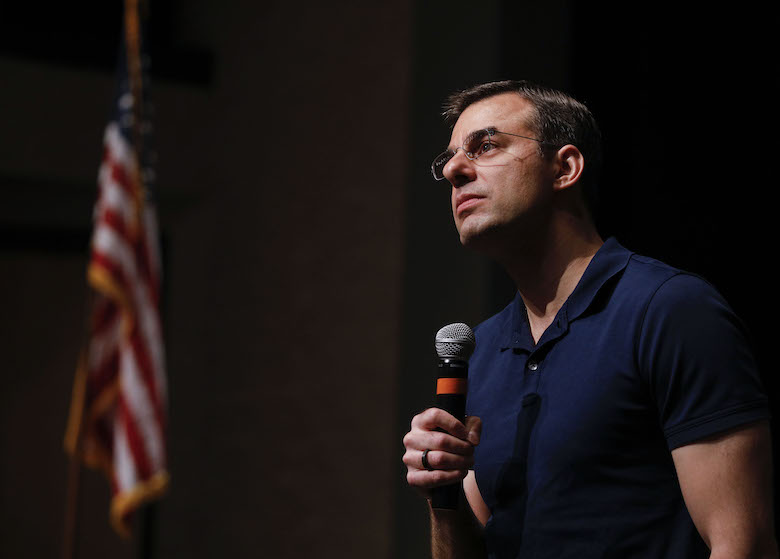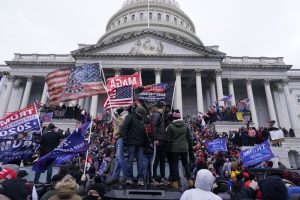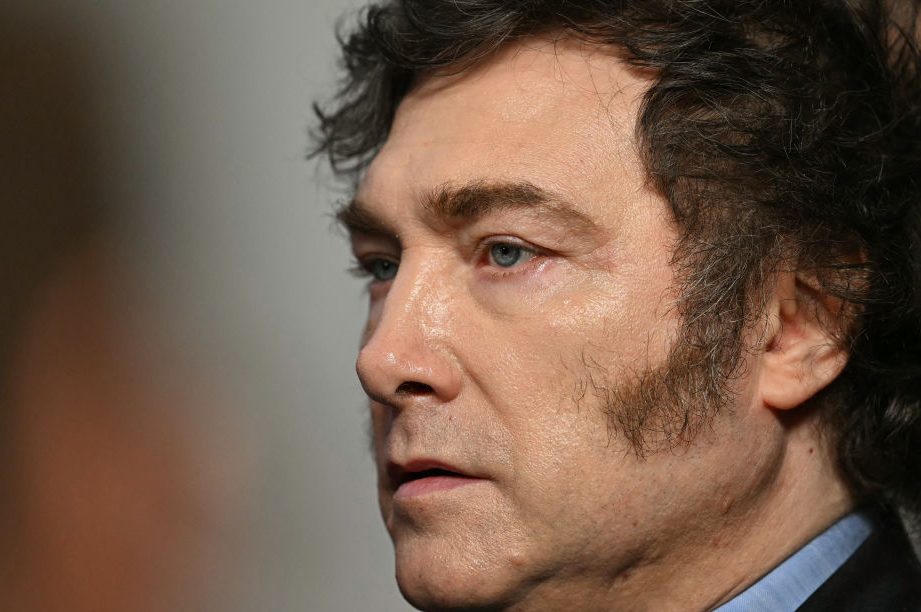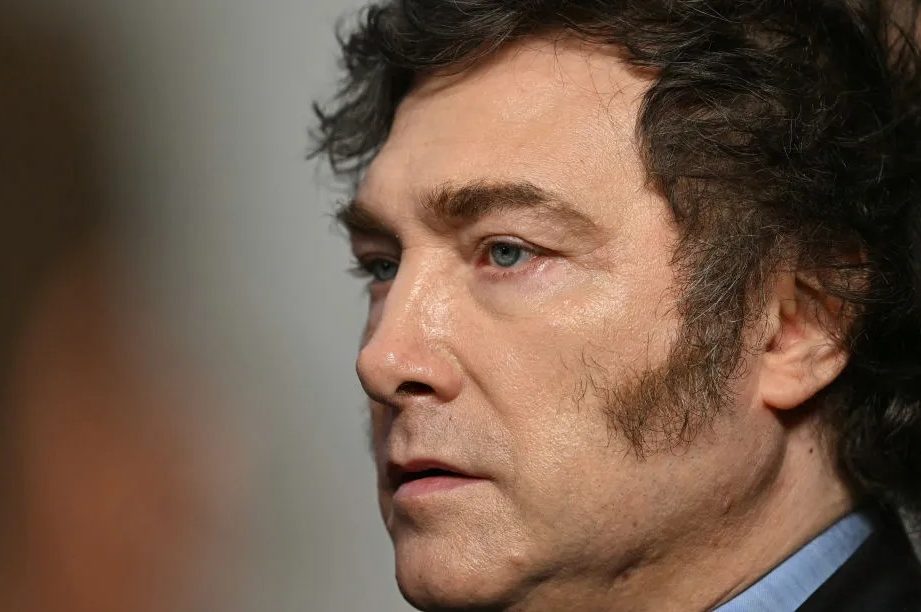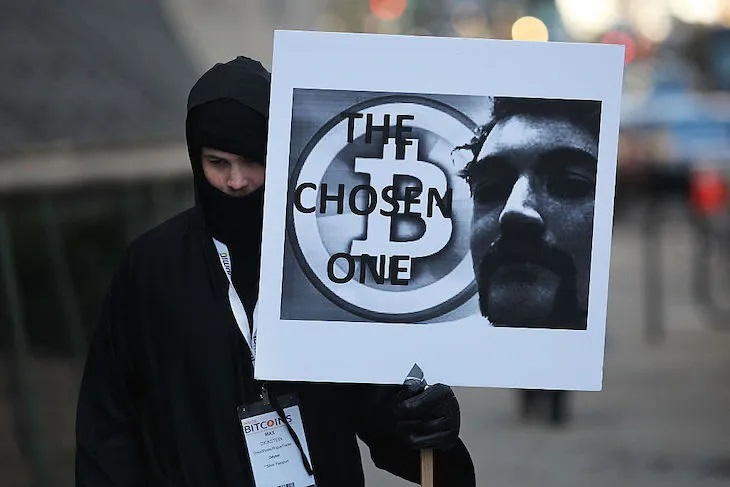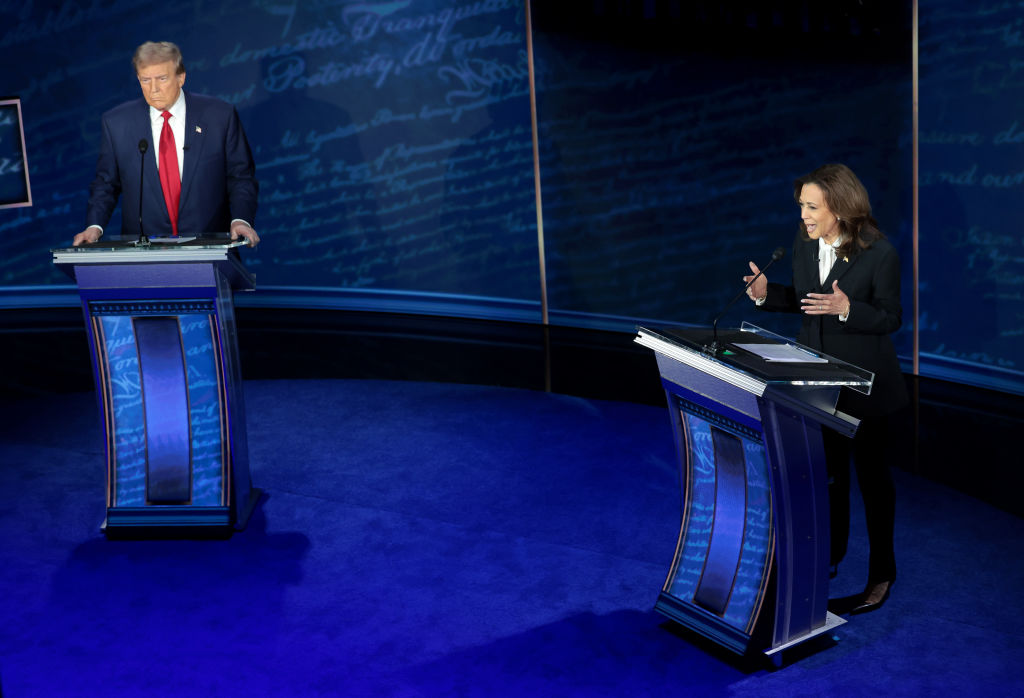Three weeks after announcing his bid for the Libertarian party presidential nomination, Justin Amash has called it off. What went wrong? His brief campaign was a media success, if nothing else — and spreading the libertarian gospel to a wider audience by getting on shows like Meet the Press is all that a Libertarian nominee can reasonably ask for. Amash couldn’t have had any illusions about that: he’s self-indulgently idealistic, but he’s not stupid.
Was he in danger of failing to get the nomination? If history is any guide, he should have been a shoo-in. The Libertarian party nominated less qualified and capable ex-Republicans in each of its last three presidential contests. Amash had a small-l libertarian voting record in Congress. Bob Barr, the party’s 2008 nominee, was had been one of the chamber’s biggest drug warriors when he was in the House of Representatives. Gary Johnson, the LP nominee in 2012 and 2016, had a libertarian-ish record as governor of New Mexico — but had achieved almost Biden-esque levels of verbal incoherence by the time he was the Libertarians’ presidential pick.
Johnson not only couldn’t tell you where Aleppo was, he started out his 2016 campaign by thinking about banning the burqa, seemingly oblivious to the problems that the First Amendment — or, say, maybe libertarian philosophy? — would pose for this. The Libertarian party nominated him anyway, along with another ex-Republican as his running mate: the longtime gun-control enthusiast and Iraq War supporter William Weld, long-ago governor of Massachusetts.
In 2012, I attended a press conference Johnson and his running mate that year, Judge Jim Gray, gave in Las Vegas. Gray was articulate, down to earth, like somebody’s Republican dad who’d come to the reluctant conclusion that the drug war was evil. He was impressive in a low-key way. Johnson, by contrast, seemed like he’d just got off saucer from Mars. In Las Vegas, at a press conference ancillary to a libertarian gathering called FreedomFest, Johnson struggled to answer any question that touched at all on libertarian philosophy. It was as if he’d never read a book. Yet he was the Libertarian nominee — twice.
Amash, by contrast, has not only read F.A. Hayek, he’s prepared to teach you a graduate seminar on Nobel Prize-winning Austrian economist, and he can give you politically astute account of Hayek’s differences with fellow ‘Austrians’ Ludwig von Mises and Murray Rothbard. He is a genuine geek. And unlike the other ex-Republicans of recent LP vintage, Amash is a current office holder: when he switched his affiliation from independent to Libertarian, he gave the LP its first federal office holder ever.
Amash’s competition for the nomination included the performance artist Vermin Supreme (whose nomination would be a little far-out even for the LP); the radical libertarian activists Jacob Hornberger and Adam Kokesh; Judge Gray; and another former LP vice presidential nominee, Jo Jorgenson; among many lesser lights. Some of these rivals have worked extremely hard, but none has what anyone would call a lock on the nomination. A sense of the contest is clear from this report by Reason’s Matt Welch: ‘Jacob Hornberger has won by far the most of the party’s non-binding primaries and caucuses. Educator Jo Jorgensen, the party’s 1996 vice presidential nominee, won the Nebraska primary this week, and she eventually edged Hornberger out for second place in an instant-runoff voting exercise (which Amash won) among around one-quarter of Libertarian party delegates.’
The notion that Amash dropped out rather than lose just doesn’t wash — lose to whom? Maybe to Hornberger, but supposedly Amash wanted to be part of the Trump-Biden race in November in order to give voters a choice. So why not give Libertarian party members a choice by staying in the race for the nomination? A convention battle between Hornberger and Amash would actually have been very healthy for the Libertarian party: Hornberger is a philosophical radical, even an anarchist, but he’s as civil and articulate as Amash. A convention struggle between them, or between Amash and the equally radical Kokesh, would have forced the Libertarian party to confront essential questions about its identity and strategy — like a real political party. Even if Amash were to lose the fight, he would have done the LP a great service by bringing about a substantive internal debate. The only possible cost would have been a little bruising to his ego.
A divided party, the prospect of losing the nomination, and the various bizarre rationalizations Amash offered on Twitter about the difficulty of campaigning during the pandemic and how ‘polarized’ the country is don’t cut it as good explanations for withdrawal. He would probably have won the nomination. He wouldn’t have won in November no matter what happened with ballot access or COVID-19. He knew that all along; and his foreshortened campaign had already succeeded in getting as much or more media coverage than Johnson ever got. Amash’s brand of libertarianism had access to a wider audience than he could have ever could have hoped for — and he threw it away. Why?
Because he was afraid his campaign might actually matter — that’s why. Amash must have been taken aback by the Twitter responses to his announcement of his intention to seek the Libertarian nomination. NeverTrump Republicans, Democrats, and others swarmed into his mentions to beg him not to run for fear of taking votes away from Joe Biden. Ever since Amash voted for impeachment, his anti-Trump admirers have far outnumbered his libertarian fans. Amash had made himself a ‘good Republican’, like Mitt Romney, who could now be invoked by Trump’s critics any time they wanted to argue that even conservatives ought to oppose Trump. Amash had left the GOP by the time he cast his impeachment vote, but he remained useful. He was still providing cover for what was overwhelmingly a partisan project. (At this point, as a I note in the forthcoming print US edition of The Spectator, the NeverTrump Republicans are partisan Democrats as well — the neocons have returned to their Democratic roots.)
Predictably, when a candidate whose supporters are mostly anti-Trump gets in the presidential race, he splits that vote with the candidate who is already running as the anti-Trump: Joe Biden. Amash’s home state of Michigan is a 2020 battleground, and the first poll to look at Amash’s likely effect on the presidential race there found that he’d cut down a Biden lead of nine points to just seven points. That may not sound like much, but in 2016, the Michigan race between Trump and Hillary Clinton came down to just 0.23 percent of the vote —and Gary Johnson won 3.59 percent
The odds that Johnson really did affect the outcome in Michigan are modest: third-party candidates can draw in voters who otherwise wouldn’t have voted at all, and there’s no way to peek into the parallel universe where all the voters who say they would have otherwise voted Republican or otherwise voted Democrat really did so in the absence of a Libertarian candidate to vote for. But even the appearance of having tipped a national election is enough to earn a third-party candidate immortal infamy from outraged partisans: for the Green party’s Jill Stein, it earned her a branding as a dupe for Putin. Even Ralph Nader, the hero of many a progressive policy battle, was damaged by insinuations that he cost the 2000 election for Al Gore. Amash wouldn’t have had to actually impair Biden’s vote to get the blame for Biden’s defeat in a close election: he’d be a convenient scapegoat.
***
Get three months of The Spectator for just $9.99 — plus a Spectator Parker pen
***
But so what? If Bill Kristol and the NeverTrump warhawks hate you, should a libertarian care? If Democrats hate you, should a Libertarian be any more troubled than a Republican is when Democrats hate him? Most important of all, wouldn’t the appearance of altering the outcome of the election show that Libertarians and libertarianism really matter — that accommodating their views is necessary if either the Democrats or the Republicans want to win? Real political power of that kind is precisely what a strategic third party would aim for — not winning the White House in a billion-to-one fluke.
The Libertarian party would have been well-served by Justin Amash putting the fear of third-party defections into the two major parties. But Amash would have earned the enmity of some of the most important people in the nation’s gatekeeper class: people who hold the keys to the academy, the prestige media, the tech companies and their riches, and so much more. Such people have plenty of tolerance for harmless Hayekian pitter-patter, especially if it’s of a politically self-neutering ‘a pox on both houses — can’t we all just get along?’ kind. They adore the ‘horseshoe theory’ which says populist complaints from left and right are equally bad: only the subservient center is good. Amash and his philosophy are no threat unless he does something consequential in the November election. Faced with a choice between disappointing libertarians and alienating the elite, Amash did the smart thing. He has brains; but where’s his heart?



